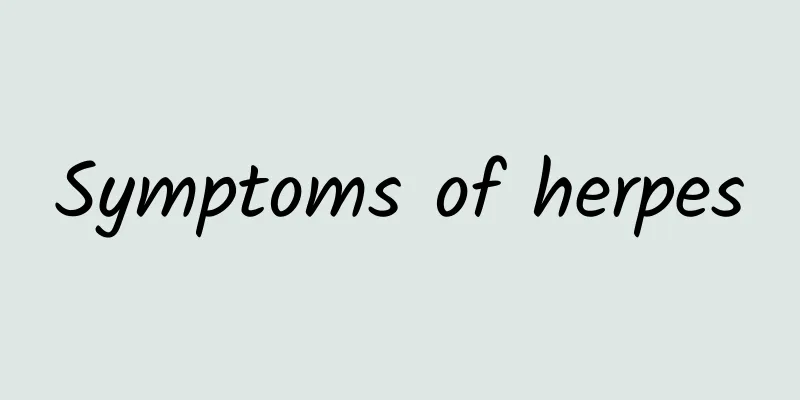What should I not eat if I have Wernicke's encephalopathy?

|
When it comes to Wernicke's encephalopathy, many people don't know about it because the name of this disease is very unfamiliar to most people. And I believe that ordinary people do not know this word, except for some specialized scholars. In fact, if someone is interested, they can learn about the so-called Wernicke's encephalopathy by reading books, but most people are not such people. Furthermore, there are many foods that patients with Wernicke's encephalopathy cannot eat. In fact, we are accompanied by many diseases throughout our lives, and many times, the names of some diseases are indeed unheard of, such as the Wernicke's encephalopathy mentioned above. In fact, in reality, there are still many people who suffer from Wernicke's encephalopathy, but doctors often don't mention the name. So, let's introduce what you can't eat if you have Wernicke's encephalopathy? Wernicke's encephalopathy (WE) or Wernicke-Korsakoff syndrome is a common metabolic encephalopathy in chronic alcoholism and an acute disease caused by thiamine deficiency. In the Chinese classification scheme for mental illness, WE is classified as mental disorder caused by alcohol intoxication. Patients who are promptly diagnosed and treated can fully recover, and the mortality rate of WE is 10% to 20%. The age of WE onset ranges from 30 to 70 years old, with an average of 42.9 years old, and is slightly more common in males. The cause of Wernicke's encephalopathy is thiamine deficiency. The causes of thiamine deficiency include vomiting in pregnant women, malnutrition, anorexia nervosa, liver disease, total gastrectomy, malignant tumors, pernicious anemia, chronic diarrhea, long-term renal dialysis, and thiamine deficiency in parenteral nutrition. Animal experiments have shown that chronic alcoholism can lead to malnutrition, mainly thiamine deficiency, which can aggravate chronic alcoholism. Clinical manifestations 1. The main manifestation is sudden onset of neurological dysfunction. Typical WE presents three groups of characteristic symptoms, including extraocular muscle paralysis, mental abnormalities and ataxia. (1) Extraocular muscle paralysis often presents with bilateral abducens nerve paralysis and diplopia. Other eye symptoms may include nystagmus, ptosis, optic disc edema, retinal hemorrhage, and sluggish or absent pupillary light reflex. Nystagmus appears early, mainly horizontally and vertically, and is often accompanied by abnormal vestibular function tests. Ophthalmoplegia usually recovers within 24 hours if treated promptly, while nystagmus takes 1 to 2 weeks to recover. (2) Mental abnormalities include disturbances in attention, memory and orientation, mental distraction, irritability, apathy and dementia, which are sometimes difficult to distinguish from the state of alcohol withdrawal and are often called generalized turbidity state; they are often accompanied by Korsakoff syndrome, which is characterized by memory impairment, learning inability, confabulation, apathy and disorientation, and are often accompanied by confusion, drowsiness or coma. (3) Ataxia mainly affects the trunk and lower limbs, and is less common in the upper limbs. Standing and walking are difficult and may take 2 weeks or longer to recover. 2. Only 10% to 16.5% of patients experience three groups of symptoms: mental abnormalities, eye symptoms, and ataxia. Most patients have hypothermia, hypotension and tachycardia, and some patients have complications such as liver disease, heart failure, pancreatitis and peripheral neuropathy. Ophthalmoplegia recovers relatively quickly, but recovery of mental symptoms often takes weeks to months. Foods that should not be eaten by people with Wernicke's encephalopathy include: Rooster Foods that are yang-raising in nature can cause liver yang resistance. You can drink chicken soup appropriately. Crab Crabs are fishy foods, which are not good for peace of mind and regularity. Be careful to eat less seafood. coffee Coffee can excite the nerves and cause sleep disturbances. People who suffer from migraines should avoid coffee. It turns out that the so-called Wernicke's encephalopathy is just a disease of chronic alcohol poisoning, and many of the symptoms related to this Wernicke's encephalopathy are similar to those of normal alcohol poisoning patients. There are many foods that people with Wernicke's encephalopathy cannot eat, such as those mentioned above: rooster, crab, coffee, etc. These are all foods that need to be avoided. |
<<: Precautions for 4D color Doppler ultrasound
>>: Side effects of meningococcal ac vaccine
Recommend
What's wrong with the toe seam?
Many people will encounter rotten toes in daily l...
These principles of rehabilitation treatment for pediatric cerebral palsy must be paid attention to!
Cerebral palsy is a relatively common disease in ...
Pictures of the efficacy and role of Plantago
Most people have heard of plantain and know that ...
What does a hysteroscopy check?
Hysteroscopy is a common gynecological examinatio...
What are the methods to strengthen the spleen, eliminate dampness and lose weight in summer?
Traditional Chinese medicine divides the year int...
The Lesser Heat is here, special strategies to help you treat winter diseases in summer
"Less Heat and Greater Heat, steaming from a...
Patients with rhinitis should pay attention to nose bleeding
Rhinitis brings great trouble to patients. We kno...
Mania symptoms and early stages
Patients with manic disorder often lose control o...
Is ginger effective in treating vitiligo?
Vitiligo is actually a special skin disease in wh...
What causes foot pain and how to treat it?
Sometimes many people can’t figure out why there ...
Medicinal effects of iron lizhai fruit
When hearing about food called Tielizhaiguo, most...
Why do hemorrhoids itch? Small hemorrhoids hide big dangers
Hemorrhoids are the most common anorectal disease...
What are the treatments for baldness?
Baldness is a common phenomenon among middle-aged...
Ways to improve insomnia
Patients with insomnia generally have trouble sle...
Pain after sex during pregnancy
Sexual intercourse is a mechanical stimulation th...









